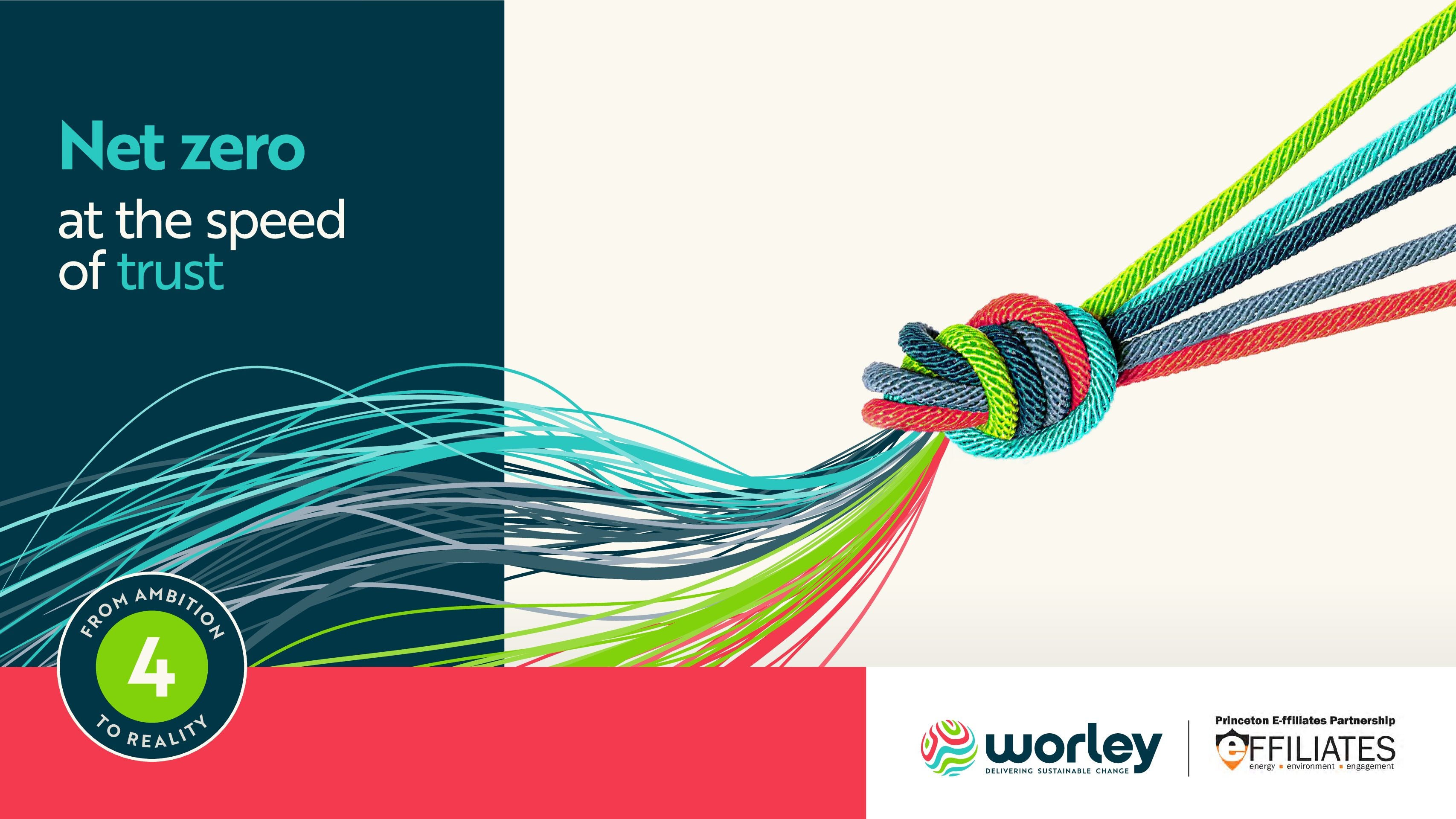
The global push towards net zero demands an unprecedented transformation in how energy is generated and managed. All modelled pathways that limit global warming to below 2°C involve significant deployment of CCS globally. Yet as promising as CCS may be, its large-scale deployment faces challenges – not just of a technical nature, but also from trust-related issues among stakeholders.
Net zero at the speed of trust – the fourth paper in the From Ambition to Reality (FATR) thought leadership series, a collaboration between Worley and Princeton University’s Andlinger Center for Energy and the Environment – explores the role of trust in delivering net zero infrastructure. The paper determines that a lack of trust is holding back the vast potential of CCS.
The paper identifies trust as a critical factor in accelerating infrastructure projects necessary for net zero. GlobalData identifies four key takeaways from the report, and how the issues of trust could shape the future of CCS.
1. The trust deficit: A barrier to CCS growth
One of the most striking findings from the report is the significant trust deficit that exists between stakeholders involved in CCS projects in the US, where a Princeton survey also found public support for carbon capture technologies is lower than anticipated by professionals within the industry.
Industry professionals and the public were surveyed in Princeton’s pulse survey on CCS in the US, revealing a sharp contrast in perceptions. When respondents who perceived that the general public distrusts CCS were questioned as to why, government regulations consistently came out on top – as shown in the figure. Perhaps surprisingly, allowing for more fossil fuels was perceived to be the lowest reason for public distrust in CCS.

This public trust perception mismatch is compounded by challenges within the industry. The pulse survey found that within the CCS professionals’ group, 64% are generally sceptical about the information provided by other CCS companies working on the same CCS project. Additionally, 59% of professionals expressed scepticism towards information from regulators, and 57% towards information from environmental organisations regarding CCS projects. This trust deficit complicates project collaboration and delays decision-making processes.
Worley’s research with Princeton emphasizes that this mistrust must be addressed. Without it, the scaling of CCS projects, particularly in the US, could face continued setbacks and jeopardise net zero goals. “There are no plausible pathways to net zero that do not involve large-scale deployment of CCS technology, building durable trust between infrastructure participants is essential,” said Chris Greig, senior research scientist at Princeton University.
2. Trust is essential for accelerating CCS infrastructure delivery
Durable trust between stakeholders is a key enabler of faster project final investment decisions (FID) and smoother project execution.
More than 30 subject matter experts identified that high levels of trust could lead to better project outcomes. These include fewer regulatory hurdles, reduced costs, and shorter project timelines — elements that are essential if CCS is to reach its potential to contribute to net zero.
Trust between key infrastructure participants – such as project developers, financiers, and regulators – was identified as one of the most important factors in driving the rapid delivery of infrastructure projects.
However, building trust is challenging. It requires transparency, communication, and a shift in how projects are developed. Without durable trust, even the best-laid plans for CCS deployment may fail to get off the ground in time to make a meaningful contribution to net zero.
3. The virtuous cycle: Trust and the FATR shifts
The FATR series explores five key shifts in practice (FATR shifts) that are critical to transforming the way net zero infrastructure is delivered. These shifts have been identified as broadening value, the digital accelerant, enabling options, creating partnerships, and standardisation.

However, research outlined in FATR4 shows that adoption of the shifts is being held back and a lack of trust has been identified as a key reason.
Trust and the FATR shifts are part of a virtuous cycle with trust providing a key to unlocking paradigm change. Trust enables the adoption of the FATR shifts. As these shifts are implemented, they build more trust. For example, by sharing risks and benefits fairly among stakeholders, trust is strengthened, which leads to better project delivery.
In practical terms, this could mean greater collaboration between private companies and local communities, more transparent decision-making processes, and engaging stakeholders earlier in project development. Princeton, with Worley’s support, is now working to better understand the factors that influence trust and create frameworks for building durable trust between infrastructure participants to deliver net zero infrastructure in a way that is faster, fairer, and more inclusive.
4. The role of community engagement in building trust
One of the critical factors influencing the success of CCS projects, according to FATR is trust with different infrastructure participants, including communities.
FATR4 highlights the need for project developers to engage with local communities from the outset, providing clear, transparent information about the benefits and risks of CCS. Gary LeMaire, technical contributor to FATR4 and Senior Director CCUS at Worley, stresses the importance of this approach.
“While trust between all infrastructure participants is important, the relationships between asset developers, governments, financiers and civil society are considered by experts to have a significant impact on the pace at which projects can be delivered,” he stated. “These groups, in particular, must invest time and effort to build durable trust through sharing information, collaborating, and creating shared value.”
For CCS to gain widespread acceptance, developers must go beyond the traditional methods of community engagement.
Clear, consistent, and frequent communication, particularly about the risks and benefits of CCS, can help reduce public concerns and create a more supportive environment for project development. This, in turn, could lead to greater regulatory support, more favourable investment conditions, and faster project approvals. By sharing information more openly, CCS stakeholders can begin to build the trust necessary to move projects forward at the speed required to reach net zero.
Net zero at the speed of trust
FATR’s research makes one thing clear: trust is not a nice-to-have in the race to net zero, it’s a critical component of success. For CCS and other net zero infrastructure projects to be deployed at scale, stakeholders must prioritise building durable trust through transparency, collaboration, and genuine community involvement.
As the demand for carbon capture and other lower-emission technologies continues to rise, the FATR work, which outlines a pragmatic roadmap for delivering net zero at the speed and scale needed, becomes increasingly important. The net zero challenge is significant. But with a collaborative approach and broad adoption of the FATR shifts, the world’s net zero ambitions become closer to reality.
Download the full report below to learn more.



